How to Lower LDL: Top Tips for a Healthier Heart
Learn how to lower LDL cholesterol naturally with our comprehensive guide. Discover effective diet tips, lifestyle changes, and natural supplements to improve your heart health.
NUTRITION
Georgen Thye
7/21/20246 min read


Low-density lipoprotein (LDL), often referred to as "bad" cholesterol, can increase your risk of heart disease and other cardiovascular problems. While the body needs some cholesterol to function properly, high levels of LDL can lead to plaque buildup in your arteries, which can cause blockages and lead to serious health issues. Fortunately, there are several effective strategies you can implement to lower LDL levels and improve your overall heart health. In this guide, we'll explore practical tips on how to lower LDL naturally.
Understanding LDL Cholesterol
LDL cholesterol is a type of fat (lipid) carried in the blood. It’s produced by the liver and obtained from certain foods. High levels of LDL can cause fatty deposits to accumulate in your arteries, making them narrow and less flexible. This condition, known as atherosclerosis, can lead to heart attacks, strokes, and peripheral artery disease.
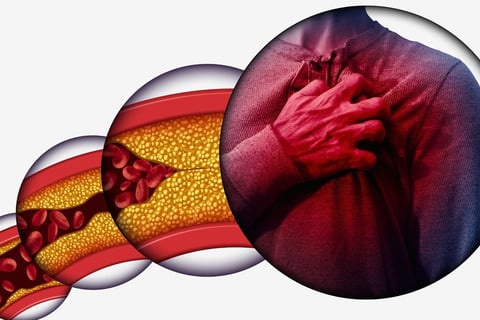

The Importance of Lowering LDL
Lowering LDL cholesterol is crucial for maintaining cardiovascular health. By managing your LDL levels, you can reduce your risk of developing heart disease, improve blood flow, and support overall wellness.
Recommended Cholesterol Levels
Understanding the recommended cholesterol levels can help you gauge your heart health:
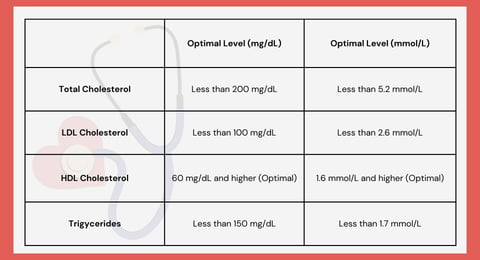

Diet and Nutrition
Diet plays a crucial role in managing cholesterol levels. Here’s how different nutrients can help lower LDL cholesterol or increase it:
Increase Soluble Fiber
Mechanism: Soluble fiber binds with cholesterol in the digestive system, helping to remove it from the body before it can be absorbed into the bloodstream. This process helps lower LDL cholesterol levels.
Sources: Oats, barley, beans, lentils, fruits (such as apples and pears), and vegetables (such as carrots and broccoli).
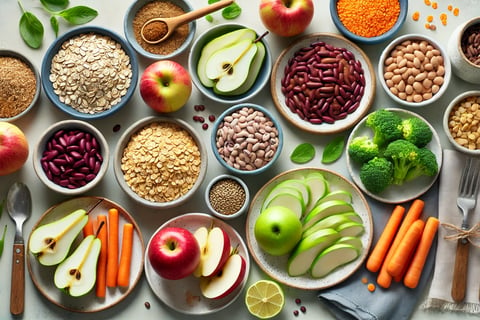

Choose Healthy Fats
Monounsaturated and Polyunsaturated Fats:
Mechanism: These fats can help reduce LDL cholesterol levels by improving your lipid profile. They help lower the levels of bad cholesterol while maintaining or even increasing levels of HDL (good cholesterol).
Sources: Olive oil, avocados, nuts, seeds, and fatty fish like salmon and mackerel.
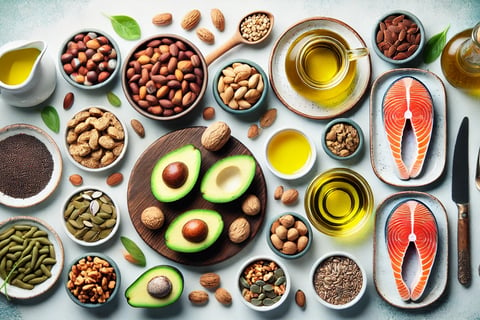

Limit Unhealthy Fats
Saturated and Trans Fats:
Mechanism: Saturated fats can raise LDL cholesterol levels by increasing the amount of cholesterol produced by the liver. Trans fats not only raise LDL cholesterol but also lower HDL cholesterol, creating a double whammy for your heart health.
Sources: Saturated fats are found in red meat, butter, cheese, and other full-fat dairy products. Trans fats are found in many fried and commercially baked products, often listed as "partially hydrogenated oils" on food labels.
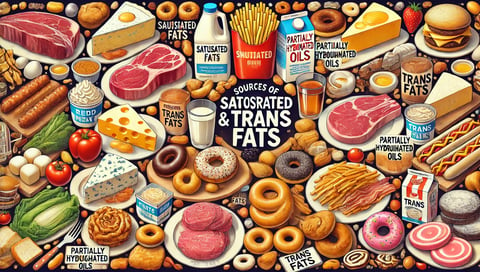

Add Plant Sterols and Stanols
Mechanism: Plant sterols and stanols are substances that help block the absorption of cholesterol in the digestive tract, which helps reduce LDL cholesterol levels.
Sources: Fortified foods like certain margarines, orange juice, and yogurt.


Eat More Omega-3 Fatty Acids
Mechanism: While omega-3 fatty acids don’t directly lower LDL cholesterol, they have other heart benefits, including reducing triglycerides, reducing the risk of arrhythmias (abnormal heartbeats), and lowering blood pressure slightly.
Sources: Fatty fish (such as salmon, mackerel, and sardines), flaxseeds, chia seeds, and walnuts.
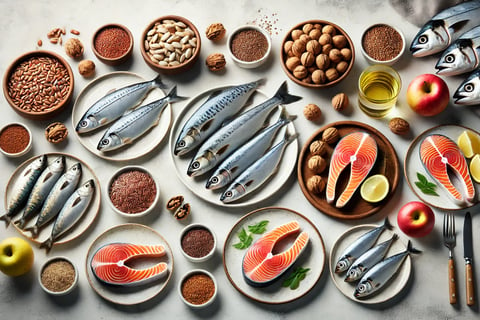

Increase Your Intake of Antioxidant-Rich Foods
Mechanism: Antioxidants help protect your cells from damage, including the oxidation of LDL cholesterol, which can make it more harmful. By reducing oxidative stress, antioxidants help improve overall heart health.
Sources: A variety of colorful fruits and vegetables like berries, citrus fruits, leafy greens, and tomatoes.
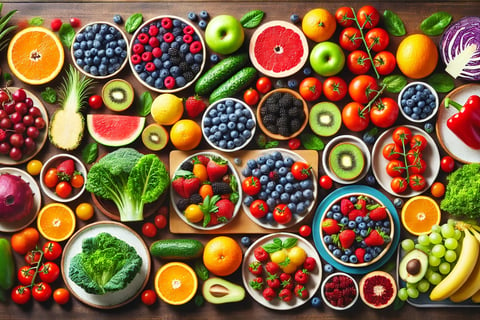

Lifestyle Changes
1. Exercise Regularly
Mechanism: Physical activity helps raise HDL (good cholesterol), which helps remove LDL cholesterol from the bloodstream. Exercise also helps improve overall cardiovascular health and aids in weight management.
Recommendation: Aim for at least 150 minutes of moderate-intensity aerobic exercise per week, such as brisk walking, cycling, or swimming.
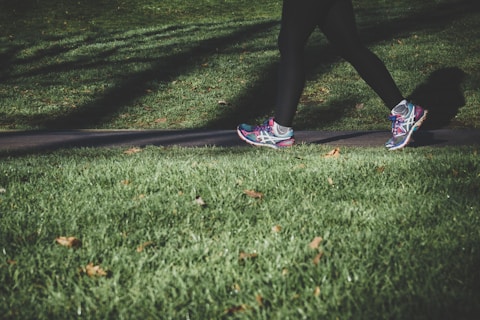

2. Maintain a Healthy Weight
Mechanism: Being overweight or obese can increase your LDL levels and lower HDL levels. Losing weight can help lower LDL and improve your overall lipid profile.
Recommendation: Focus on a balanced diet and regular exercise to achieve and maintain a healthy weight.


3. Quit Smoking
Mechanism: Smoking lowers HDL cholesterol and raises LDL cholesterol. Quitting smoking can improve your HDL level, which helps lower your LDL levels.
Recommendation: Seek support from healthcare providers or support groups to quit successfully.


4. Limit Alcohol Consumption
Mechanism: Drinking too much alcohol can raise your total cholesterol levels and increase the risk of high blood pressure and high triglycerides.
Recommendation: If you drink, do so in moderation—up to one drink per day for women and up to two drinks per day for men.


5. Manage Stress
Mechanism: Chronic stress can negatively impact your cholesterol levels and overall heart health by increasing blood pressure and promoting unhealthy behaviors.
Recommendation: Practice stress-reducing techniques such as meditation, yoga, deep breathing exercises, or spending time in nature.


Natural Supplements
1. Psyllium
Mechanism: Psyllium is a soluble fiber that can help lower LDL cholesterol by binding to cholesterol in the digestive system and removing it from the body.
Sources: Over-the-counter fiber supplements and certain breakfast cereals.
2. Red Yeast Rice
Mechanism: Red yeast rice contains compounds similar to statin medications, which can help reduce LDL cholesterol levels.
Recommendation: Use under the supervision of a healthcare provider due to potential side effects.
3. Fish Oil Supplements
Mechanism: Fish oil supplements are high in omega-3 fatty acids, which can help reduce triglycerides and improve overall heart health.
Recommendation: Consult your doctor before starting any supplement regimen.
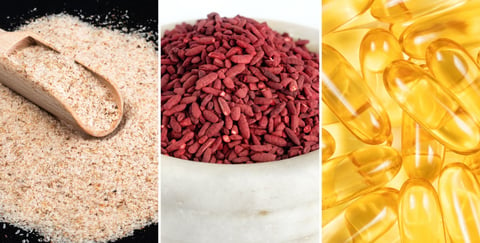

When to Seek Professional Help
If you have high LDL levels or are at risk of heart disease, it's important to work with your healthcare provider. Usually, before starting a patient on cholesterol-lowering medication, doctors will first advise lifestyle modifications. This is the perfect time to consult a dietitian. They can help you develop a personalized plan to manage your cholesterol levels through diet and lifestyle changes.
Conclusion
Reducing LDL cholesterol is a key step towards improving your heart health and reducing the risk of cardiovascular disease. By making dietary changes, adopting a healthier lifestyle, and considering natural supplements, you can effectively lower your LDL levels. Remember, consistency is crucial, and small changes can lead to significant health benefits over time.
References
Grundy, S. M., Stone, N. J., Bailey, A. L., Beam, C., Birtcher, K. K., Blumenthal, R. S., ... & Witztum, J. L. (2018). 2018 AHA/ACC/AACVPR/AAPA/ABC/ACPM/ADA/AGS/APhA/ASPC/NLA/PCNA guideline on the management of blood cholesterol: a report of the American College of Cardiology/American Heart Association Task Force on Clinical Practice Guidelines. Journal of the American College of Cardiology, 73(24), e285-e350.
Jenkins, D. J., Kendall, C. W., Marchie, A., Faulkner, D. A., Wong, J. M., de Souza, R., ... & Singer, W. (2003). Effects of a dietary portfolio of cholesterol-lowering foods vs lovastatin on serum lipids and C-reactive protein. JAMA, 290(4), 502-510.
Mozaffarian, D., Micha, R., & Wallace, S. (2010). Effects on coronary heart disease of increasing polyunsaturated fat in place of saturated fat: a systematic review and meta-analysis of randomized controlled trials. PLoS Medicine, 7(3), e1000252.
Kris-Etherton, P. M., Hecker, K. D., Bonanome, A., Coval, S. M., Binkoski, A. E., Hilpert, K. F., ... & Etherton, T. D. (2002). Bioactive compounds in foods: their role in the prevention of cardiovascular disease and cancer. The American Journal of Medicine, 113(9), 71-88.
Anderson, J. W., Johnstone, B. M., & Cook-Newell, M. E. (1995). Meta-analysis of the effects of soy protein intake on serum lipids. The New England Journal of Medicine, 333(5), 276-282.


